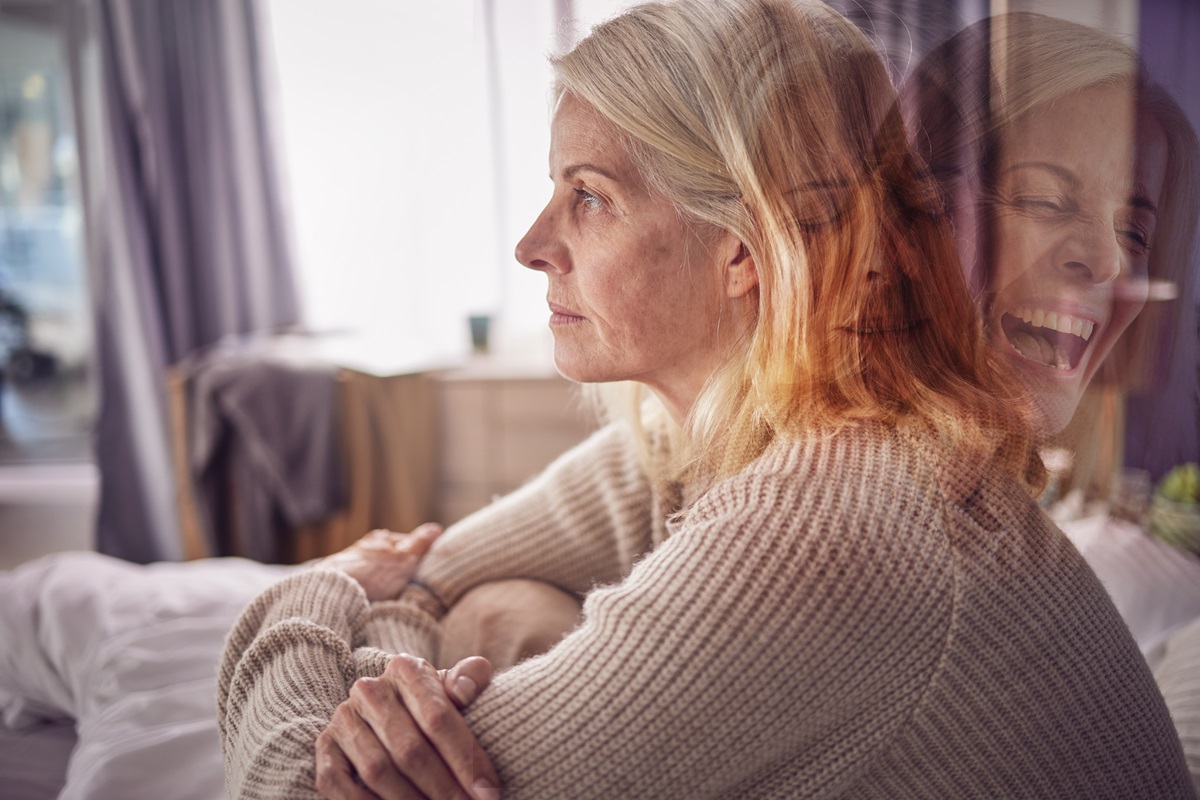What do you think of this article?
By Dr. David Woo - December 12, 2020

For many people diagnosed with depression, especially those with severe depression, antidepressants provide welcomed relief from symptoms. However, approximately one-third of people with depression won’t see improvement in their symptoms with antidepressants, and as much as 50% will stop taking their medication due to undesirable side effects, fear of addiction, or even lack of patient education from their physician, among other reasons. (1,2)
There are many ways to treat depression. The type of treatment prescribed depends on the severity of someone’s depression. What are some alternative and supplemental treatments used to treat depression that doesn’t require medication?
Transcranial Magnetic Stimulation
Transcranial magnetic stimulation, commonly referred to as TMS, is a medication-free depression treatment that uses magnetic pulses to relieve depressive symptoms. TMS is FDA-approved specifically to help patients with treatment-resistant depression who do not see an improvement of their symptoms with antidepressants, although more and more patients who wish to avoid the side effects of antidepressants are seeking out treatment with TMS. (3)
TMS is administered as one course of treatment for nine weeks. During a TMS session, patients sit comfortably in a chair and a magnetic coil is carefully placed above their head. Magnetic pulses are delivered through the coil to a specific region of the brain. Patients can return to work immediately following a TMS session. Learn more about TMS.
Cognitive-Behavioral Therapy
Talk therapy is considered one of the main treatments for depression and is clinically proven to help relieve depressive symptoms. A review of dozens of clinical trials conducted over the course of 25 years reveals that a special type of therapy, called cognitive-behavioral therapy or CBT, is “equally effective” as second-generation antidepressants, which include SSRIs (selective serotonin reuptake inhibitors) and SNRIs (serotonin-norepinephrine reuptake inhibitor), in reducing depressive symptoms. This study also found that CBT is effective at reducing the risk of relapse, even when patients discontinue sessions. (4,5)
The goal of CBT is to reduce or eliminate negative thought and/or behavior patterns that can trigger depressive episodes and make depression worse. (6,7) For example, patterns of negative self-talk, like “Everyone thinks you’re obnoxious” or “You said the wrong thing when your friend asked for your opinion,” can distort reality and one’s self-image. Finding ways to change these thought patterns can help reduce depressive symptoms and depressive episodes.
Eating a Well-Rounded Diet Rich in Whole Foods and Low in Greasy and Sugary Foods
There is a great deal of evidence that links diet and depression. One study clearly shows that people who eat a diet high in added sugars, red meat, high-fat dairy products, and fried foods experience depressive symptoms and depressive moods more often than people who don’t. (8) Another study found that after 12 weeks of eating fresh and whole foods, like vegetables, fruits, whole grains, fish, and legumes, people with moderate to severe depression reported an improvement in depressive symptoms (9).
Although no specific diet is proven to treat depression, eating foods that nourish the body are a helpful part of any depression treatment.
Exercise
The benefits of exercise go beyond the known advantages to physical well-being. It is well-documented that exercise improves depressive symptoms, and scientists are getting closer to understanding why. (10) One study reveals that exercise triggers nerve cell growth, specifically in the hippocampus, and leads to an increase in hippocampus volume. (11) Scientists know that the hippocampus is smaller in people with depression compared to people who do not have depression. (12)
Exercise should not be used as a standalone treatment, but instead as a supplemental treatment for depression. Patients should choose low to moderate exercise that is easy to commit to doing for a long time–six months to a year, and hopefully for life.
Depression Treatment is Unique to Each Individual
There are different ways of treating depression. A treatment method that works for someone else, may not work for you. Working with your doctor to find the right depression treatment can take time. If the first treatment method doesn’t work, it doesn’t mean that you are a failure or that you’ll never find relief from your symptoms.
Resources:
1. Ionescu DF, Rosenbaum JF, Alpert JE. Pharmacological approaches to the challenge of treatment-resistant depression. Dialogues Clin Neurosci. 2015;17(2):111-126. Link. Accessed October 08, 2020.
2. Sansone RA, Sansone LA. Antidepressant adherence: are patients taking their medications?. Innov Clin Neurosci. 2012;9(5-6):41-46. Link. Accessed October 08, 2020.
3. McClintock SM, Reti IM, Carpenter LL, et al. Consensus Recommendations for the Clinical Application of Repetitive Transcranial Magnetic Stimulation (rTMS) in the Treatment of Depression. J Clin Psychiatry. 2018;79(1):16cs10905. Link. Accessed October 08, 2020.
4. Yvette Brazier. CBT and antidepressants ‘equally effective’ for major depression. Medical News Today. Published February 09, 2016. Link. Accessed October 08, 2020.
5. Qaseem A, Barry MJ, Kansagara D. Nonpharmacologic Versus Pharmacologic Treatment of Adult Patients With Major Depressive Disorder: A Clinical Practice Guideline From the American College of Physicians. Ann Intern Med. 2016;164(5):350-359. Link. Accessed October 08, 2020.
6. Rnic K, Dozois DJA, Martin RA. Cognitive Distortions, Humor Styles, and Depression. Europe’s Journal of Psychology. 2016:12(3);348-362. Link. Accessed October 09, 2020.
7. Hofmann SG, Asnaani A, Vonk IJ, Sawyer AT, Fang A. The Efficacy of Cognitive Behavioral Therapy: A Review of Meta-analyses. Cognit Ther Res. 2012;36(5):427-440. Link. Accessed October 09, 2020.
8. Vermeulen E, Stronks K, Snijder M, Schene AH, Lok A, de Vries JHM, Visser M, Brouwer IA, Nicolaou M. A combined high-sugar and high-saturated-fat dietary pattern is associated with more depressive symptoms in a multi-ethnic population: the HELIUS (Healthy Life in an Urban Setting) study. Public Health Nutrition. 2017:20(13):1-9. Link. Accessed October 10, 2020.
9. Jacka FN, O’Neil A, Opie R, Itsiopoulos C, Cotton S, Mohebbi M, Castle D, Dash S, Mihalopoulos C, Chatterton ML, Brazionis L, Dean OM, Hodge AM, Berk M. A randomised controlled trial of dietary improvement for adults with major depression (the ‘SMILES’ trial). BMC Medicine. 2017:15(23). Link. Accessed October 10, 2020.
10. Blumenthal JA, Smith PJ, Hoffman BM. Is Exercise a Viable Treatment for Depression?. ACSMs Health Fit J. 2012;16(4):14-21. Link. Accessed October 12, 2020.
11. Gujral S, Aizenstein H, Reynolds CF 3rd, Butters MA, Erickson KI. Exercise effects on depression: Possible neural mechanisms. Gen Hosp Psychiatry. 2017;49:2-10. Link. October 12, 2020.
12. Schmaal, L., Veltman, D., van Erp, T. et al. Subcortical brain alterations in major depressive disorder: findings from the ENIGMA Major Depressive Disorder working group. Mol Psychiatry 21, 806–812 (2016). Link. Accessed October 12, 2020.
Dr. Woo has been seeing patients in private practice since 2002, always with the goals of combining evidence-based medicine with psychodynamic psychotherapy and collaborating with other mental health professionals to ensure the best possible outcomes for his patients. He has been certified to administer TMS at his practice since 2017. His greatest clinical interests include helping patients suffering from depression, anxiety, and obsessive compulsive disorder.



